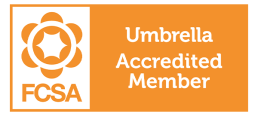Are your skills in demand?
Deciding when the right time is to quit your job and begin a full-time freelance career can be difficult. If you can see that your skills are in demand, you should be able to find freelance projects, without hassle.
However, if you are unsure whether there is market demand for your skills, it is advisable to work part-time whilst you secure a few roles and establish yourself as a freelancer.
You’ll also need to get an idea about the going rate for your skills, bearing in mind that as a new entrant, you will not be able to ask for as much as you have not established your reputation within the industry.
What is your availability?
One of the main perks of being a freelancer is that you have more flexibility over your working hours and have much more freedom to work outside of the general 9am-5.30pm. However, you do need to make sure you are available and have some degree of flexibility with the hours that you are prepared to work, as some roles can start within a couple of days or a week, and some may require you to work specified hours.
Have you got the drive and determination?
Freelancing requires you to be pro-active and have the ability to work of your own accord. You’ll need to be prepared and ready to actively seek new contracts and make sure you are continually marketing yourself and your skills to potential clients.
You’ll need to be disciplined and organised, as you may be juggling multiple projects at a time, whilst running your company and the general admin tasks associated with it.
Don’t forget – it is essential that you get a good work-life balance so you don’t burn yourself out.
Have you decided on your payment structure?
As a freelancer, you can choose to become a director of your own limited company or join an umbrella company. Setting up your own limited company is the most tax efficient way to get paid as a freelancer. However, there is initially a lot of paperwork and ongoing administration which can be demanding and time-consuming.
For this reason, many freelancers choose to use a dedicated contractor accountant who will handle the set-up of the company and the majority of the paperwork – leaving you with more time to freelance and do more of the work you enjoy.
Some freelancers choose to operate through an umbrella company. Umbrella companies are ideal for those looking for a quick payroll set up and minimal administration. It is also worthwhile using an umbrella company if you are new to freelancing and unsure if it is for you.
Do you have the funds to support yourself at the start?
Moving from a steady income to freelancing can significantly impact your finances – especially when you are first starting out and contracts can be irregular. Make sure you have put some money aside, or are still working part-time initially, to ensure you are still able to meet payments and can afford the important bills such as rent.
Know your client and be ready to market yourself
As a freelancer, you are responsible for promoting yourself- both your services and your expertise. It is advisable to create your own website and social media pages. This will give you a platform from which you can advertise your capabilities, and where clients can find out about your relevant skills and previous industry experience.
Your clients are the key to the success of your business. When you offer excellent customer service and build a good rapport with clients, they will be more likely to refer you to their friends or colleagues. If this happens you won’t have to be as pro-active when looking for work, as work may come to you.
The information above is written for guidance purposes only and should not be considered factual legal advice. Legislation is updated regularly and the content may be outdated. For more information, please call 01707 871622.
Check out our newest articles
21 January 2025
Becoming a first-time contractor in 2025
With the new year now in full motion, many workers are looking to explore new options for the next step in…
3 January 2025
Economic Review December 2024
As we enter 2025, this article provides an overview of the UK's economic performance in December 2024,…
17 December 2024
Opening hours during the festive period
We will operate as usual until the end of Christmas Eve (24th December, 09:00 – 17:30). However, during the…
13 December 2024
5 tips for nurses and healthcare professionals when engaging with an umbrella company
Umbrella companies are a popular method of payroll for nurses and healthcare professionals working on…
3 December 2024
Economic Review November 2024
Interested in keeping up to date with the latest economic performance information impacting businesses and…
14 November 2024
How will the rise in Employer’s National Insurance impact umbrella company employees’ take-home pay?
Chancellor Rachel Reeves announced in the Budget 2024 (Wednesday 30th October 2024) that the Employer’s…
7 November 2024
Churchill Knight Group enters exciting new chapter after acquisition
The Churchill Knight Group has been acquired by Magi GJJ – a group of business professionals with extensive…
31 October 2024
Budget 2024: The implications for recruitment agencies and their candidates using umbrella companies
The long-awaited Budget 2024 was delivered by Labour Chancellor Rachel Reeve in parliament on Wednesday, 30th…
31 October 2024
How will the increase in Employer’s National Insurance impact recruitment agencies and umbrella company employees?
On Wednesday, 30th October 2024, Chancellor Rachel Reeves delivered the first Labour Budget in over 14 years.…















